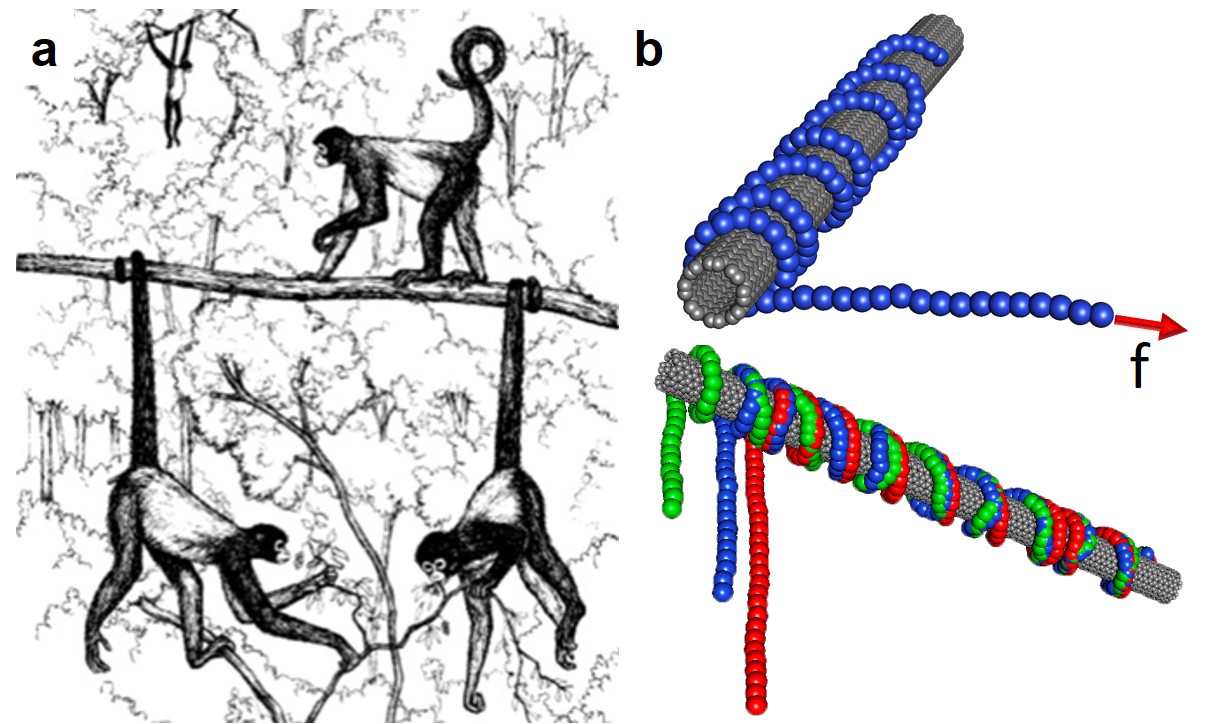The “wrapping” of polymer chains on the surface of carbon nanotubes allows one to obtain multifunctional hybrid materials with unique properties for a wide range of applications in biomedicine, electronics, nanocomposites, biosensors, and solar cell technologies. We study by means of molecular dynamics simulations the force-assisted desorption kinetics of a polymer from the surface of a carbon nanotube. We find that, due to the geometric coupling between the adsorbing surface and the conformation of the macromolecule, the process of desorption slows down dramatically upon increasing the windings around the nanotube. This behavior can be rationalized in terms of an overdamped dynamics with a frictional force that increases exponentially with the number of windings of the macromolecule, resembling the Euler-Eytelwein mechanism that describes the interplay between applied tension and frictional forces on a rope wrapped around a curved surface. The results highlight the fundamental role played by the geometry to control the dynamics and mechanical stability of hybrid materials in order to tailor properties and maximize performance.
Download a copy of the manuscript (preprint version)

